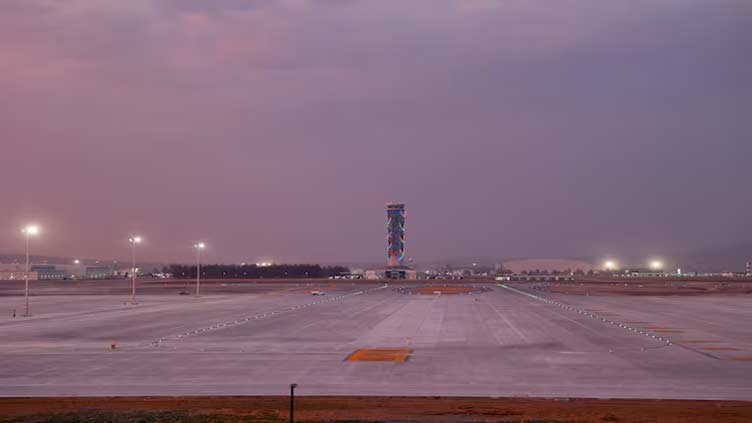Mexico expands new airport after forced move of cargo flights

Business
The government is looking to wrap up other infrastructure projects
MEXICO CITY (Reuters) - Mexico is rushing to expand the cargo holding area of a two-year-old military-run airport, less than a year after the outgoing president forced cargo flights to move to the site, an official confirmed.
"The way they've kicked off work immediately, it's impressive," Deputy Transportation Minister Rogelio Jimenez Pons told Reuters.
The government is looking to wrap up other infrastructure projects before President Andres Manuel Lopez Obrador leaves office in October and his protege, former Mexico City Mayor Claudia Sheinbaum, takes over.
The military said in a document filed to the finance ministry this year that it would spend some 2.86 billion pesos ($162.88 million) to build seven "duplex-style" cargo storage buildings, two platforms and a new taxiway.
Last year, Lopez Obrador ordered cargo carriers to move operations to the Felipe Angeles International Airport (AIFA) on the city outskirts, away from the older, closer Mexico City International Airport (AICM).
Lopez Obrador admitted it was to boost traffic at the new airport, a flagship project of his administration, where business was slow.
When the move was decreed, all cargo storage areas at the AIFA had already been claimed, a UPS executive told Reuters in September.
The storage area "ended up being too small for (carriers)," Jimenez Pons said.
The airport has quickly become the country's top spot for cargo flights, according to civil aviation data.
"At the beginning, the companies complained," Jimenez Pons said. "But now (I tell them), 'You're making double than you were before!'"
The official said industry had begun to spring up around the AIFA as well, and movement of goods was becoming "much more efficient".
The transportation ministry completed construction on a new highway to the AIFA after its opening.
The government has been heavily subsidizing the AIFA since it opened. Without 1.484 billion pesos ($84.52 million) in subsidies last year, the AIFA would have reported a loss, its annual report showed.
Now the AIFA "is getting close to being self-sufficient," Jimenez Pons said.


